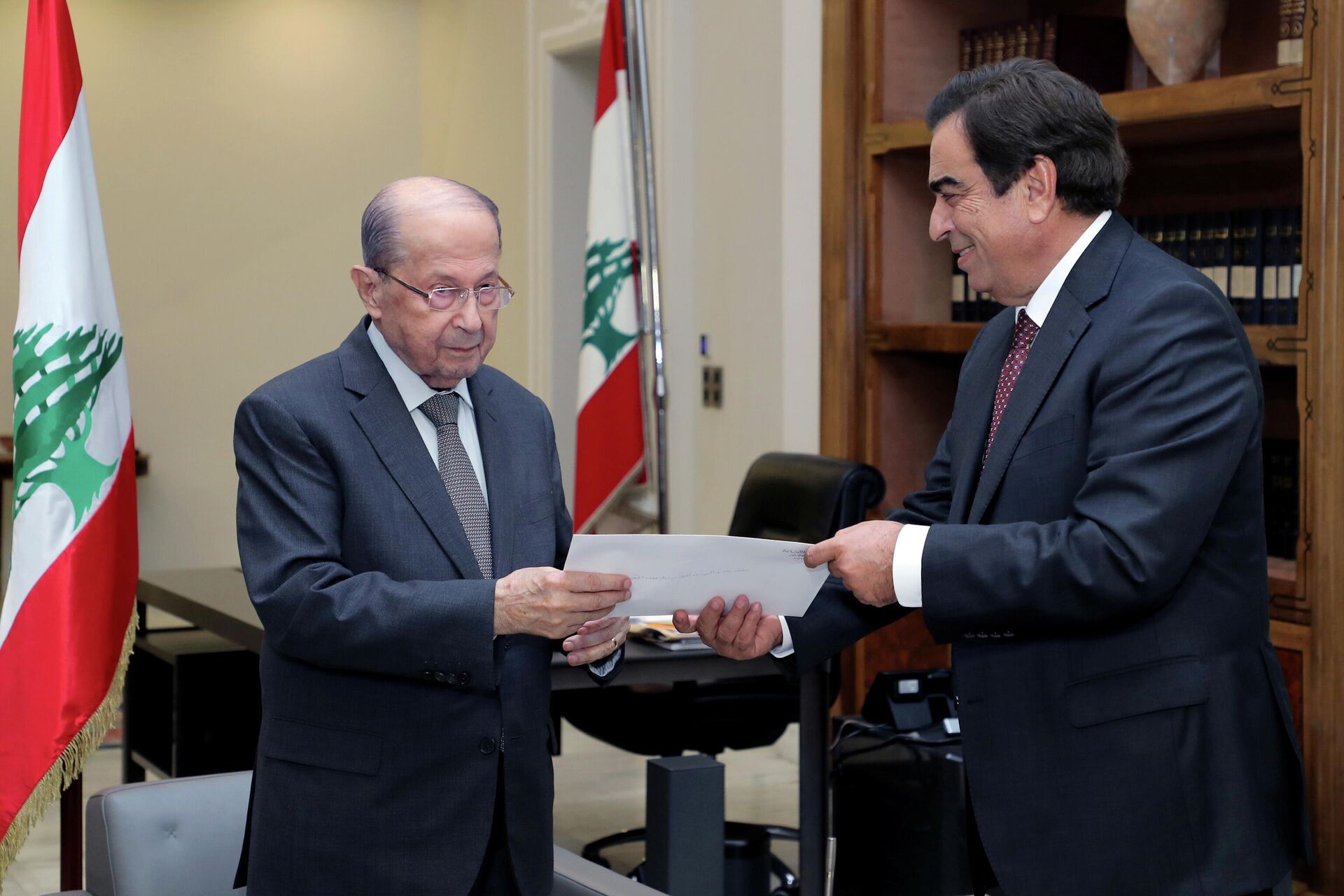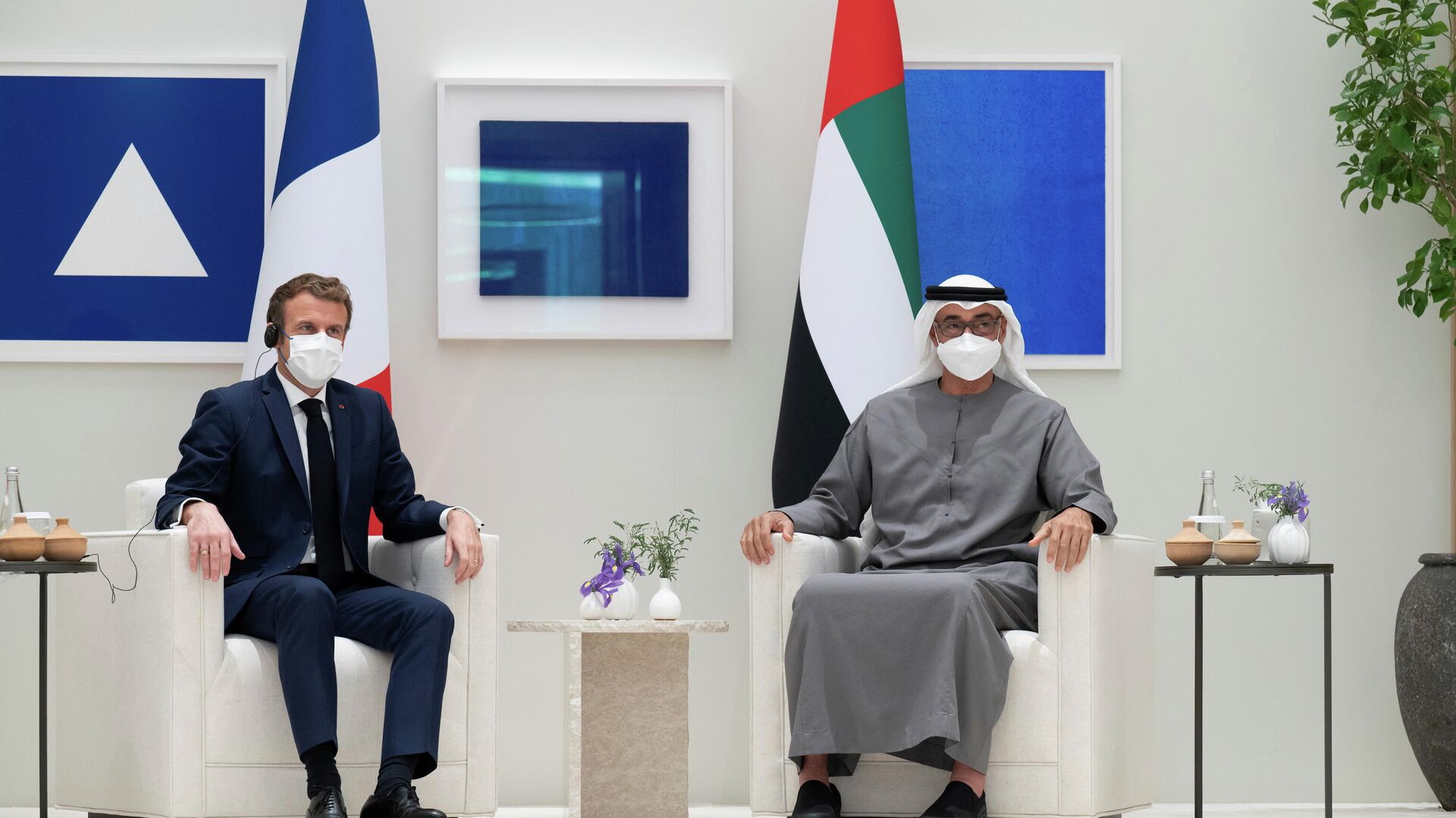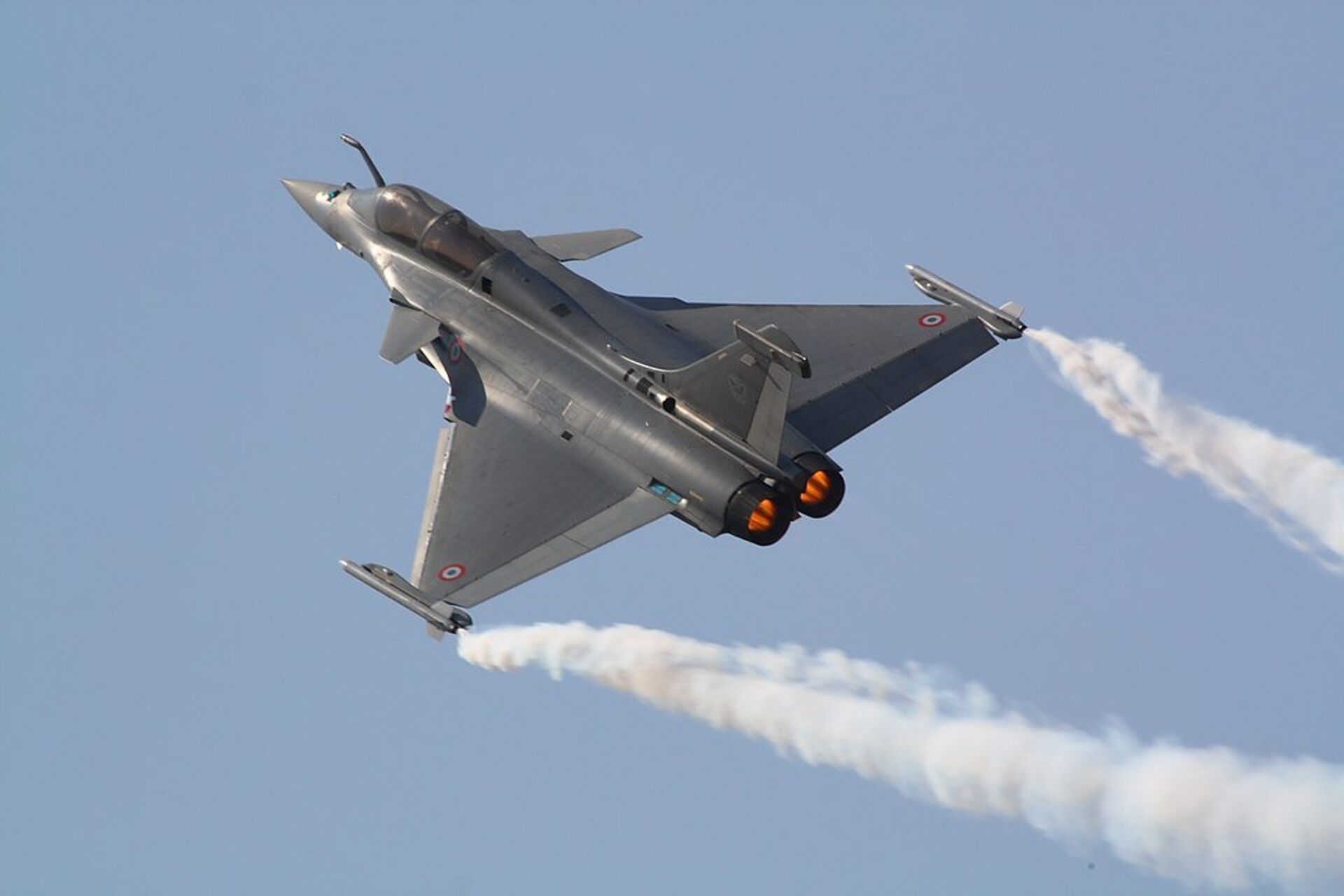Macron Postures as Peacemaker Between Lebanon, Gulf Nations After Selling UAE Fighter Jets
20:21 GMT 03.12.2021 (Updated: 22:24 GMT 03.12.2021)
Subscribe
A monthslong row between Lebanon and several Persian Gulf nations was sparked by former Information Minister George Kordahi’s criticisms of the Saudi-led war in Yemen, leading to several nations cutting ties with Beirut. A previous row in 2017 saw Lebanon’s then-prime minister, Saad Hariri, suddenly resign during a trip to Riyadh.
French President Emmanuel Macron said on Friday that he hopes his trip to several Gulf nations will help further heal the rift between them and Lebanon, a former French colony, following Kordahi’s resignation earlier in the day.
"We will see at the end of this trip - and I remain cautious - but my wish is both economically and politically, to be able to re-engage all the Gulf countries in the relationship with Lebanon, to help them get out of this," Macron said while in Dubai, United Arab Emirates.
"I hope the coming hours will allow us to make progress," he added, noting that he hoped Lebanese Prime Minister Najib Mikati would also convene his government and continue with economic reforms that Paris has long backed.
The French leader is due to tour Saudi Arabia in the coming days and meet with Saudi Crown Prince Muhammad Bin Salman, the de facto head of the Saudi government, to discuss topics ranging from Iran to Yemen, according to the Saudi Gazette, as well as archeological digs at the ancient Nabataean city of Al-’Ula.
That meeting has already come under fire in the French press, with critics saying he shouldn’t meet with the man who authorized the October 2018 assassination of dissident journalist Jamal Khashoggi at the Saudi consulate in Istanbul, Turkey.
"Who can think for one second that we can help Lebanon and preserve peace and stability in the Middle East if we say: 'We're not going to speak to Saudi Arabia, the most populated and most powerful country in the Gulf'?" Macron fired back at reporters while in Dubai.
"It doesn't mean that I endorse anything, that I've forgotten, that we're not demanding partners," he said, adding that he was acting "for our country and in the interests of the region."
France and the Yemen War
Macron’s visit to the UAE has also included penning a massive new $19 billion weapons sale that includes 80 advanced Dassault Rafale fighter jets and 12 Airbus Caracal utility helicopters. While Abu Dhabi has pulled its forces out of the war against the Yemeni Houthi movement, when it was still engaged in the conflict, Abu Dhabi became a major customer for French military hardware, resulting in Macron regularly defending the weapons sales against critics.
An especially damning report was leaked in April 2019 that had been prepared for the French restricted council by the Directorate of Military Intelligence the previous September. The report revealed that Minister of the Armed Forces Florence Parly had lied when she claimed French military hardware wasn’t and couldn’t be used in the Yemen war.
The report revealed French Mirage 2000 strike aircraft, targeting pods for laser-guided bombs, and a slew of artillery pieces had been used in the massive coalition bombardment of Houthi-controlled cities and towns that has wrecked the country’s infrastructure and greatly contributed to the incredible death toll that the United Nations estimates will hit 377,000 before by the end of the year.
Despite the formal Emirati withdrawal in February 2020, they still had a smaller number of troops in Shabwa, the capital of the eastern Hadhramaut Governorate, and in the Red Sea port of Mocha, as of late May 2021, according to the Brookings Institution think tank in Washington, DC. Other academics have also pointed to the persistent power of Emirati influence over its many allied militia groups on the ground in Yemen
Row Over Lebanese Criticism of Air War
It was this air war, which failed to halt the Houthis in their seven-year struggle against the Saudi-aligned Yemeni government, that Kordahi criticized in October, tearing a barely-healed wound between Beirut and the Saudi-led alliance wide open.

Lebanon's President Michel Aoun meets with George Kordahi after his resignation as Information Minister, at the presidential palace in Baabda, Lebanon December 3, 2021.
© REUTERS / DALATI NOHRA
In a television interview that aired in late October, Kordahi said the Houthis were "defending themselves ... against an external aggression" and that their "homes, villages, funerals and weddings were being bombed" by the coalition. He also called the Saudis' seven-year war effort "futile" and said it was "time for it to end."
His comments came amid an air campaign by the Saudis hoping to blunt the Houthi offensive in Ma’rib Governorate, which by early December had been mostly claimed by the Zaidi Shiite rebel group despite a continuing bombardment by Riyadh. Ma’rib is the last stronghold of Yemeni President Abdrabbuh Mansour Hadi in the north of the country and an economic powerhouse rich in oil.
Kordahi’s comments sparked fury in Riyadh: the monarchy described them as "slanderous" and "deplorable and unacceptable” and ordered its diplomats out of the Levantine country. It also levied a series of accusations against Beirut, including that they had failed to take action against alleged drug smuggling by Hezbollah, a Shiite militia and political party in Lebanon that is part of the government and which the Saudis have long claimed is supporting the Houthi struggle.
Riyadh also banned all Lebanese imports. Its friends in the region, including the UAE, Bahrain and Kuwait, soon followed suit.




